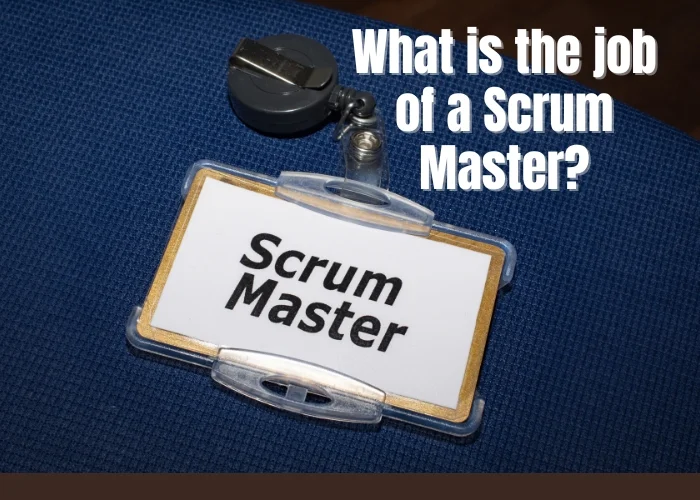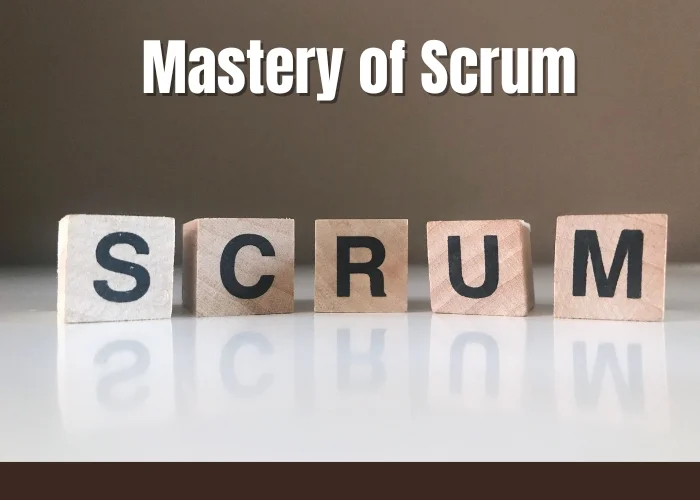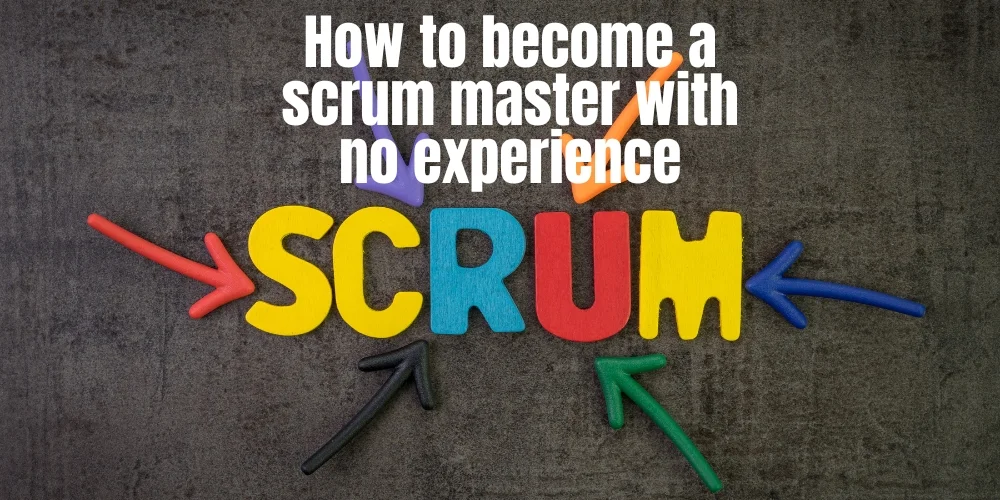Since I know this headline will irritate certain people, I can extend an olive branch immediately. My goal is to assist you in gaining Scrum experience. But first, we need to agree on something that should be evident before I can provide that assistance.
Experience is necessary for mastery. Let’s talk about how to become a scrum master with no experience.
No one owes you a compensated position as an expert advisor, no matter how much you want to be a Scrum Master. You have to work for it.
Gaining it requires a thorough understanding of Scrum and a track record of assisting others in enhancing value delivery.
A scrum master: what is it?
A project manager who uses the Scrum framework to lead a team is known as a Scrum master. Scrum is a project management framework that technology organizations frequently utilize to help them build software and technological items more efficiently.
This framework is a component of the Agile project management methodology, which relies on cooperation and adaptability to finish projects. The Scrum structure includes regular feedback, cross-team cooperation, and daily check-ins.
Why am I starting this at all?
A tiny but growing group of online influencers are attempting to market the notion that all it takes to become a Scrum Master—a role responsible for overseeing a team’s performance—is a couple of days workshop and some soft skills. Typically, this implies the team is working on a software product worth a million dollars.
In addition to being disrespectful to the industry, this is also extremely harmful to those who invest time and money in this pursuit only to, worse, wind up failing to land a position or, worse yet, drowning in a role they cannot comprehend and receiving negative feedback.
What is the job of a Scrum Master?

A Scrum master assists the Agile team members in finishing tasks. Depending on their organization, their roles may differ, but typical ones might be:
- facilitating the daily Scrum meeting, a 15-minute session when the goals of the day are discussed
- teaching team members about the ideas of agile
- observing groups and determining their advantages
- Making sure a team adheres to the Scrum framework and principles
- mentoring group members to accomplish goals and enhance their abilities
- directing communication between teams
- facilitating the planning process, reviews, and sprints—all aspects of the Scrum framework
- Leading and participating in the project at the same time
How a novice can become a Scrum master
Consider taking the following actions to assist you in obtaining your first Scrum master position if you’re interested in becoming a Scrum master but lack experience:
Apply the Scrum framework in different capacities.
Businesses looking to hire Scrum masters frequently ask for Scrum knowledge; however, this might come from roles unrelated to Scrum. Think about putting the Scrum framework and concepts into practice in other spheres of your life before applying for your first Scrum master position.
This can be used for various assignments and projects; some even attempt to incorporate the idea into their jobs.
Expand your contacts
Consider joining a local agile group or attending agile conferences to expand your professional network. Meeting people in the industry in this way can be very beneficial and may even result in a job offer. A network link can match you with an available position or provide career advice related to Scrum in your area, including firms to look into.
Acquire necessary abilities
Discuss gaining related skills via education, online training courses, or work experience. As a Scrum master, you use Agile and Scrum concepts to your soft skills, such as teamwork and communication.
Your professional background may have already given you experience in these areas. Before applying for your first Scrum master role, consider honing them in your existing position, volunteering, or extracurricular activities.
Examine your alternatives for certification.
Certification can increase employability and help you land your first Scrum master job. As part of a certification program, you demonstrate your mastery of Scrum concepts by passing an exam and completing training.
The Scrum Alliance offers the opportunity to become a Certified Scrum Master (CSM). For this qualification, a 16-hour training course is required. You take an exam with 50 multiple-choice questions following the session. Once the test is passed, you have your CSM certification.
Emphasize transferable abilities
It’s crucial to emphasize the transferrable abilities you’ve acquired from previous jobs, including employment, education, and hobbies while applying for a Scrum master position without any prior experience. One transferrable talent you may use in several roles is communication.
When drafting your CV, look at the abilities requested in a job posting for a Scrum master position. Think about the skills you possess and make an effort to showcase them on your CV. For instance, you might have interpersonal, communication, and organizational skills if you’ve worked as a retail associate. These can be used to demonstrate your potential success as a Scrum master.
Get ready to look for work.
You can start applying and see which Scrum master positions are open. Try to modify your resume for the role in question when you submit your application. For instance, include the company’s name in your purpose statement or emphasize alternative abilities based on what the employer seeks.
Should the employer agree to an interview, you can start getting ready by reviewing possible interview questions. The employer may inquire about your experience and degree of expertise. Before the interview, think about rehearsing responses that showcase your background in different fields and how it applies to the Scrum master position.
Mastery of Scrum

A Scrum master needs a specific skill set to carry out their responsibilities. They could employ the following technical and soft abilities:
- Communication: Scrum masters utilize communication to guide daily meetings, mentor their teams, and motivate team members.
- Interpersonal skills: A Scrum master interacts with a range of individuals daily. They may establish beneficial interactions with their team members by utilizing their good interpersonal abilities, which include empathy and active listening.
- Cooperation: Scrum masters help teams communicate with one another. They can share ideas and duties with various people using collaboration abilities.
- Coaching: Scrum masters with coaching abilities can better guide, instruct, and motivate their team members.
- Conflict resolution: Solving issues and settling disputes may be a part of a Scrum master’s responsibilities. Their ability to resolve conflicts peacefully will enable them to foster productive team situations, which could boost output.
- Knowledge of Scrum and Agile: Scrum masters are knowledgeable about both Scrum and Agile concepts. They can review these concepts with their groups, train members on using them, and ensure everyone uses the proper procedures.
In summary
It is possible to become a Scrum Master without any prior experience if you take the appropriate steps. Your path to a rewarding career as a Scrum Master can be started by grasping the fundamentals, being certified, acquiring real-world experience, honing soft skills, creating an online presence, and applying for entry-level roles.

